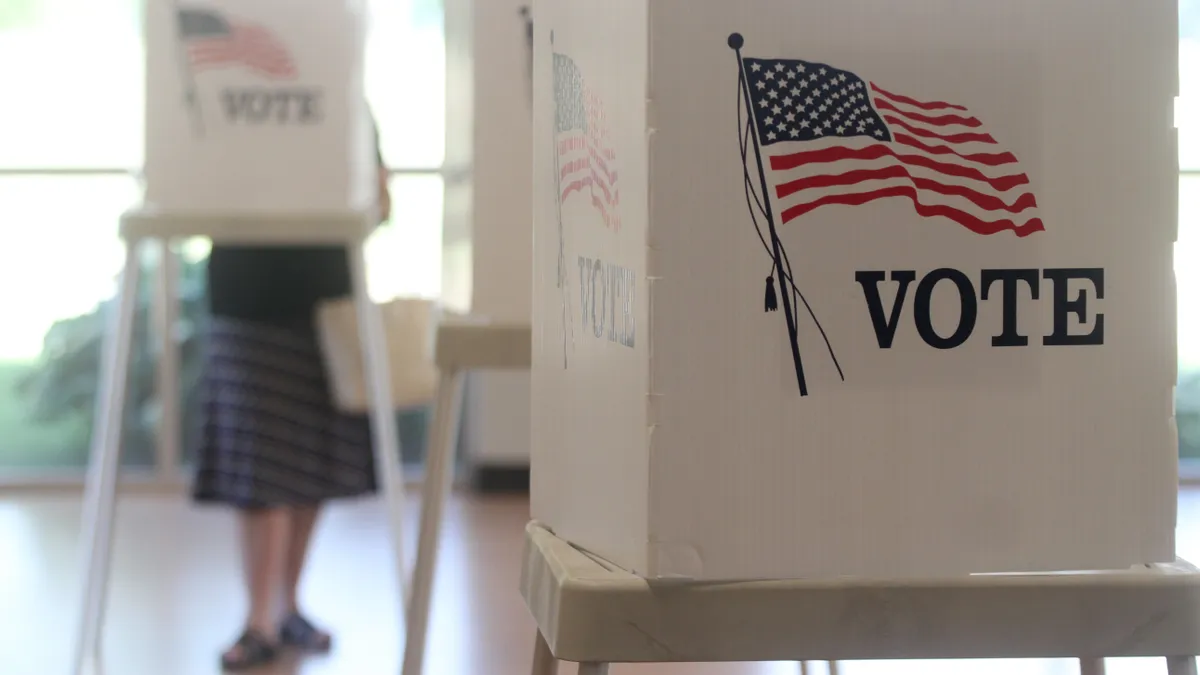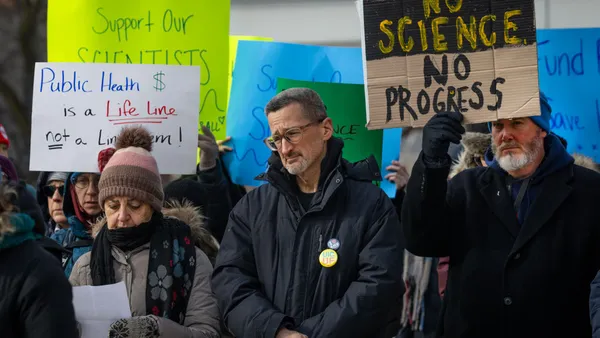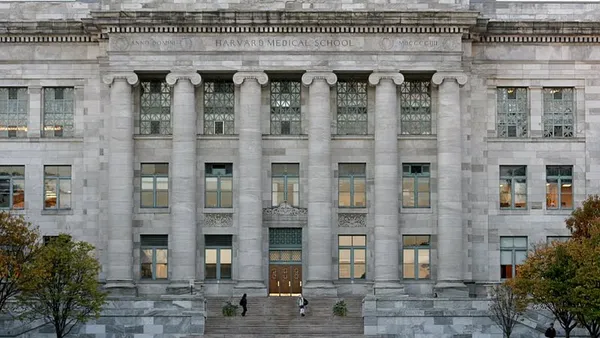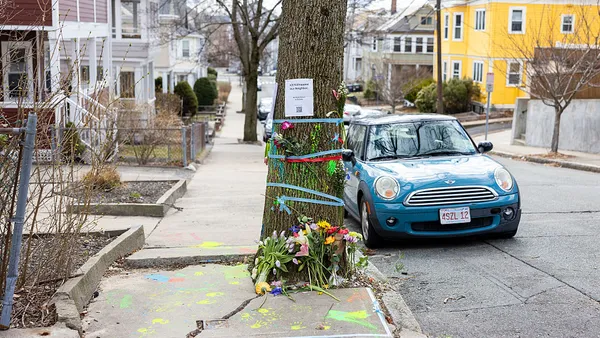Dive Brief:
- Sixteen Republican attorneys general urged the U.S. Department of Education in a letter this week to reconsider recent guidance allowing college students to get paid for nonpartisan voter registration efforts under the Federal Work-Study program.
- The Education Department issued guidance in late February saying that Federal Work-Study funding could support students working for public agencies on election-related activities if they are “not associated with a particular interest or group.” The department said eligible duties include get-out-the-vote drives, voter registration, assisting voters at polling places or on voter hotlines, or serving as poll workers.
- The attorneys general, however, argued that even voter registration activities that seem nonpartisan can “serve overtly political functions” by focusing on localities where people are more likely to favor a particular candidate.
Dive Insight:
The Federal Work-Study program provides funding for part-time employment to college students who need additional aid to cover the cost of their education. The program generally covers up to 75% of students’ wages, while their employers pay the rest.
The Federal-Work Study program provided roughly $1.2 billion in student aid during the 2023 fiscal year. Around 600,000 students benefit annually, according to a 2021 report from the Community College Research Center.
In February, Vice President Kamala Harris pointed to the Education Department’s new guidance as part of the Biden administration’s larger effort to safeguard voting rights. “We have been doing work to promote voter participation for students,” Harris said in prepared remarks for a White House meeting with voting rights leaders.
But the attorneys general voiced concerns that the efforts would be used to tilt elections, arguing that the guidance “ignores the dangers that come with entangling public dollars in political functions.”
“Laudable activities like encouraging voter turnout and registering voters have to happen somewhere, and that somewhere decides elections,” they wrote. “Your guidance effectively licenses colleges and universities to subsidize this activity — and potentially swing elections by choosing where to direct these funds — with taxpayer money.”
Further, the letter argues that the guidance doesn’t provide guardrails against abuse. Although the Education Department specifies that the funding can only go toward “broad-based get-out-the-vote activities,” they wrote, it doesn’t discuss limits around efforts focused on Democratic- or Republican-leaning cities.
The attorneys general also raised concerns that university officials wouldn’t adequately monitor whether election-related activities were partisan. And they further suggested college officials might look the other way if they noticed that the supervisors overseeing the student employees had political agendas aligned with their own views.
An Education Department spokesperson said Thursday that the agency received the letter and will respond directly to the attorneys general.














